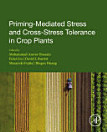Plant Macronutrient Use Efficiency: Molecular and Genomic Perspectives in Crop Plants
About this ebook
About the author
Dr. Mohammad Anwar Hossain is a professor in the Department of Genetics and Plant Breeding, Bangladesh Agricultural University, Mymensingh-2202, Bangladesh. He received his B.Sc. in Agriculture and M.S. in Genetics and Plant Breeding from Bangladesh Agricultural University, Bangladesh. He also received an M.S. in Agriculture from Kagawa University, Japan in 2008 and a Ph.D. in Abiotic Stress Physiology and Molecular Biology from Ehime University, Japan in 2011 through a Monbukagakusho scholarship. As a JSPS postdoctoral researcher he worked on isolating low phosphorus stress tolerant genes from rice at the university of Tokyo, Japan during the period of 2015–17. His current research interests include the isolation and characterization of abiotic stress responsive genes and proteins, physiological and molecular mechanisms of abiotic stress response and tolerance with special reference to oxidative stress, antioxidants and methylglyoxal metabolism and signaling, generation of stress tolerant and nutrient efficient plants through breeding and biotechnology, and cross-stress tolerance in plants. He has more than 50 peer-reviewed publications and has edited 8 books, including this one, published by CRC press, Springer, and Elsevier.Affiliations and ExpertiseDepartment of Genetics and Plant Breeding, Bangladesh Agricultural University, Mymensingh, Bangladesh
Dr. Takehiro Kamiya is an Associate Professor at the Laboratory of Plant Nutrition and Fertilizers, Department of Applied Biological Chemistry, Graduate School of Agricultural and Life Sciences, at The University of Tokyo, Japan. He obtained his PhD, in 2006, from Nagoya University, Japan. After doing his postdoctoral research at the Nagoya University (2006–07), University of Tokyo (2007–10), Aberdeen University (2010–12), he accepted the position of lecturer at the University of Tokyo. Since 2015, he has been an Associate Professor at the University of Tokyo. His current research interests areunderstanding of the essential and nonessential element dynamics in plants using ICP-MS and hyperspectral camera. He is also interestedin molecular mechanisms of Casparian strip formation.
Dr. David J. Burritt is an Associate Professor in the Department of Botany, The University of Otago, Dunedin, New Zealand. He received his B.Sc. and M.Sc. (hons) in Botany, and his Ph.D. in Plant Biotechnology from The University of Canterbury, Christchurch, New Zealand. His research interests include oxidative stress and redox biology, plant based foods and bioactive molecules, plant breeding and biotechnology, cryopreservation of germplasm, and the stress biology of plants, animals, and algae. He has more than 100 peer-reviewed publications and has edited 3 books for Springer and 3 for Elsevier.Affiliations and ExpertiseDepartment of Botany, University of Otago, Dunedin, New Zealand
Lam-Son Phan Tran is currently a Professor of the Department of Plant and Soil Science Institute of Genomics for Crop Abiotic Stress Tolerance (IGCAST), Texas Tech University. He obtained his M.Sc. in biotechnology in 1994 and Ph.D. in biological sciences in 1997 from Szent Istvan University, Hungary. He completed his postdoctoral research at several research institutions in Japan, including the National Food Research Institute, the Nara Institute of Science and Technology, and at the Japan International Research Center for Agricultural Sciences. Between 08/2007 and 12/2008, he worked in the Soybean Genomics and Biotechnology Laboratory, University of Missouri-Columbia, USA, as a senior research scientist. From 01/2009 to 08/2020, he held a Unit Leader position in RIKEN, Japan. His current research interests are the elucidation of the roles of phytohormones and signalling molecules, and their interactions in environmental stress responses and tolerance, as well as translational genomics of crops with the aim to enhance crop productivity under adverse environmental conditions. He has published over 230 peer-reviewed papers and contributed numerous book chapters to various book editions published by Springer, Wiley-Blackwell, and the American Society of Agronomy, Crop Science Society of America, and Soil Science Society of America. Together with his co-editors, he has edited several book volumes for Springer and Elsevier.
Dr. Toru Fujiwara is a Professor at the Laboratory of Plant Nutrition and Fertilizers, Department of Applied Biological Chemistry, GraduateSchool of Agricultural and Life Sciences, at The University of Tokyo, Japan. He obtained his PhD in 1992 from University of Tokyo, Japan. He worked in several institutions in his early carrier, including Washington University in St. Louis, University of California, Davis, and Cornell University. Since 2011, he is at the current position. He has worked and is presently continuing on a wide range of topics,including plant nutrient transport, long-distance transport of nutrients and macromolecules, regulation of nutrient transport processes, mathematical modeling of nutrient transport, and generation of low nutrient tolerant plants.







